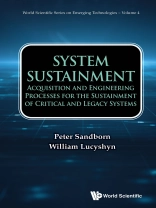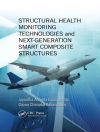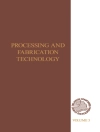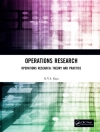‚Sustainment‘ (as commonly defined by industry and government), is comprised of maintenance, support, and upgrade practices that sustain or improve the performance of a system and maximize the availability of goods and services while minimizing their cost and footprint or, more simply, the capacity of a system to endure. Sustainment is a multi-trillion-dollar enterprise for critical systems, in both government (infrastructure and defense) and industry (transportation, industrial controls, data centers, and energy generation).
This book is a mix of engineering, operations research, and policy sciences intended to provide students with a thorough understanding of the concept of sustainability and sustainable product life-cycles, and an appreciation of the importance of sustaining critical systems. It starts from the key attributes for system sustainment that includes data analytics, engineering analysis and the public policy needed to support the development of technologies, processes, and frameworks required for the management of sustainable processes and practices. The specific topics covered include: acquisition of critical systems, reliability, maintenance, availability, readiness, inventory management, supply-chain management and risks, contracting for sustainment, and various analysis methodologies (discounted cash flow analysis, discrete-event simulation and Monte Carlo methods). Practice problems are included at the end of each chapter.
Contents:
- Introduction to Sustainment
- The Acquisition of Critical Systems
- System Failure
- Maintenance — Managing System Failure
- Availability and Readiness
- Sustainment Inventory Management
- Supply-Chain Management
- System Sustainment Enablers
- Contracting for Sustainment
- Epilogue — The Future of System Sustainment
- Appendice A: Discounted Cash Flow (DCF) Analysis
- Appendice B: Monte Carlo Analysis
- Appendice C: Discrete-Event Simulation (DES)
- Appendice D: Summary of Notation and Acronyms
Readership: This book is intended to be a resource for advanced undergraduate and graduate students in engineering (aerospace, civil, electrical, mechanical, and engineering management), business, and public policy who want to understand the ramifications of, and processes for, system sustainment. It is also a useful reference for industry short courses provided to practicing professionals, whom in many cases, were not introduced to system sustainment during their education and are now thrust into the field with minimal preparation.
Key Features:
- While there are many books that focus on system reliability, there are fewer treatments of the consequences of system unreliability
- The book adopted a holistic view that systems are more than just hardware and software, in addition they are supply chains, workforces, contracts, business models, acquisition processes and governance, if any of these elements fail, might lead to failure of the entire system
- As a result, this book is a mix of engineering, operations research, and policy sciences intended to provide students with an appreciation of the life-cycle costs, consequences, and risks of procuring and sustaining critical systems












